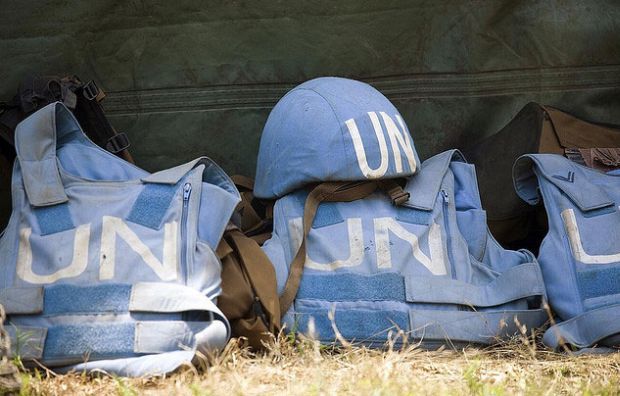
Waiting for blue helmets: Will peacekeepers help Ukraine?
Yet another ceasefire in the Donbas has proved to be a formality. In order to stop or freeze the conflict, Ukraine has decided to play its last trump card, and is now speaking of inviting in United Nations peacekeepers.
The OSCE Mission, which not only often turned a blind eye to on heavy artillery shelling of Ukrainian positions by Russian-terrorist troops, but also “could not” get into Debaltseve as separatists failed to provide them security guarantees, finally discredited this kind of "monitoring" of the situation in the Donbas. As a result, the need to involve UN peacekeepers to maintain peace and security started to be voiced in Ukraine.
A peacekeeping force - a buffer zone between the parties
On Wednesday evening, the National Security and Defense Council (NSDC) of Ukraine approved an appeal to the UN and the European Union on the deployment of the peacekeeping mission on the country’s territory.
"The issue has been discussed and it has been decided to request the UN and the EU on the execution of operations for peacekeeping and maintaining security on Ukraine’s territory,” Secretary of the National Security and Defense Council Oleksandr Turchynov told reporters after the meeting.
Turchynov also said that the peacekeepers should be positioned both along the contact line in the Donbas, and also along the uncontrolled parts of the Russian-Ukrainian border. He also noted that Ukraine’s Foreign Ministry will form an appropriate request to be approved by the Verkhovna Rada.
Indeed, parliament believes that Ukraine needs peacekeepers. “A peacekeeping force is a buffer zone between the parties [of the conflict]. This option will help avoid new hostilities,” said the MP Sergei Labazyuk.
“The first thing to understand, and it has been understood in the NSDC, is that no real and effective monitoring of the ceasefire and the withdrawal of heavy weapons are possible [under] the OSCE mission, [which is] unable to perform such functions,” said Volodymyr Fesenko, head of the Penta Center for applied political studies.
On the other hand, if the OSCE has failed, then who can actually maintain control of the neutral zone, and the ceasefire, Fesenko said.
“So the issue of the UN peacekeeping mission arose only because of the complete helplessness and total ineffectiveness of the OSCE mission in the conflict zone,” says the political analyst, “After Debaltseve, it became obvious that the OSCE mission not only failed to monitor the implementation of the ceasefire, it could not even get into Debaltseve. And of course, they could not intervene and influence the situation, having no authority and no resources. Then the question arose: how can we ensure the withdrawal of heavy weapons, if the OSCE cannot effectively address this issue?”
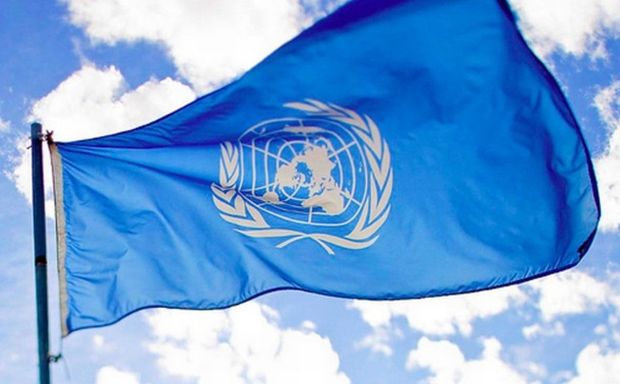
It is interesting that in October 2014 (after the signing of the first Minsk Agreement), the issue of attracting UN peacekeeping force in Ukraine was not on the agenda. “In accordance with international law, there is no such conflict here that would require the intervention of peacekeepers. But this proposal can be considered, although, to date, this issue is not on the agenda,” said Valery Chaly, who was deputy head of the Presidential Administration back then.
However, it is worth noting that the representatives of the so-called LNR and DNR (the Luhansk People’s Republic and the Donetsk People’s Republic) actively called for for the presence of peacekeeping forces in the Donbas back in the fall. The reason for that was simple - they saw the forces of the Collective Security Treaty Organization (CSTO) as “peacekeepers” in this case. Actually, the CSTO member states - Armenia, Belarus, Kazakhstan, Kyrgyzstan, Tajikistan and Russia (with the Moscow-based Joint Staff of the organization) also expressed unequivocal desire to “bring peace” to Ukraine. Russia has even tried to convince the United Nations of the need for such a step. Moreover, the Kremlin insisted that the Donbas should send a peacekeeping mission, 60% of which would be Russian troops.
It’s not surprising that Ukraine was not happy with such an option. Now the foreign ministry has drawn attention to the fact that, in the case of the deployment of peacekeepers to the Donbas, there must be no representatives of Russia, branded an aggressor state, in this mission.
"I separately want to note very clearly that representatives of Russia, the aggressor state, must not take part in the mission. Since this is not just a matter of trusting the mission and the effectiveness of the mission, but, in general, the matter of principles, values, and respect for international law,” Ukrainian Foreign Minister Pavlo Klymkin said on Thursday.
Resistance of Russia and the EU
Anyway, despite the fact that the president of Ukraine, the NSDC, the Foreign Ministry and the Verkhovna Rada have a their own visions of the need to involve a UN peacekeeping mission right now, it does not negate the problems in implementing such a plan. Thus, according to the ex-Foreign Minister of Ukraine Volodymyr Ohryzko, to create a UN mission abroad, the UN Security Council has to approve the appropriate resolution.
"In the UN Security Council there is a country called the Russian Federation, therefore, hoping that Russia will let someone else rather than its militants monitor the border between Ukraine and Russia would be a quite naive dream,” said the diplomat.
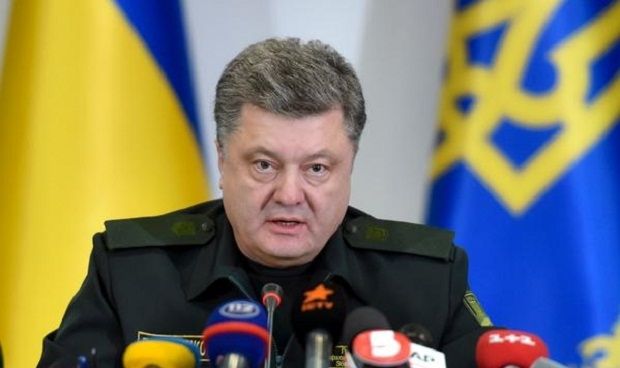
Moscow's reaction to the NDSC’s decision confirms this point. In particular, the State Duma Speaker Sergei Naryshkin opposed the idea to deploy UN peacekeepers to the occupied territories of the Donbas and along the border with Russia. “The Minsk agreement does not provide for such measure,” he said.
In turn, the chairman of the Federation Council Committee on Defense and Security Viktor Ozerov thinks Russia could agree to the introduction of peacekeepers, but not at the border and not in the occupied parts of the Donbas. “In any case, we should not forget that Russia, as a permanent member of the UN Security Council is responsible for maintaining and restoring peace, and its opinion defines whether peacekeepers will be sent to Ukraine,” said Ozerov.
Moreover, Ozerov hinted that Russia's position in the UN Security Council on peacekeepers will depend on who participates in a mission. “Representatives of NATO member states – that would be impossible,” he said.
However, the European members of NATO also fear deploying their troops in the conflict zone in the Donbas. "The European Union fears the most sending any of its soldiers to the conflict zone in the Donbas,” said Volodymyr Ohryzko.
Therefore, according to Ukraine’s ex-Foreign Minister, it is not worth hoping that proposals to deploy a peacekeeping and security force in the territory of Ukraine will be implemented.
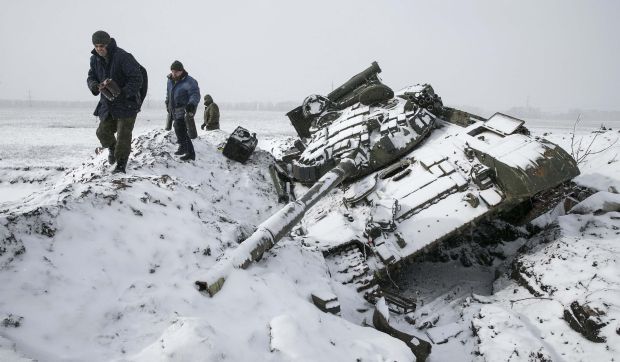
Bohdan Yaremenko, a Ukrainian diplomat, Ukraine’s Consul General in Edinburgh (2006-2008) and Istanbul (2010-2014) also shares this opinion. According to him, the UN Security Council Russia will either not agree to such a scenario, or try to arrange it the way it prefers. “So I think that Ukraine should focus on something to get external defensive aid, purchase or receive assistance in the form of weapons, and it is Ukrainians who must fight, no peacekeeping missions will ever solve for us the issues of the defense and protection of the territory of their homeland," the diplomat said.
A step toward de-escalating the conflict
At the same time, according to Yaremenko, a EU Police Mission will also be of no help in resolving the conflict in the East of Ukraine. The expert is positive that the police force is not a structure that can handle warring parties that use artillery.
“A policing mission, as a rule, is comprised of law enforcement officers, and it’s not its task to stop shelling - it’s about maintaining public order in areas that once were in the conflict zone, while there are no official authorities or [in case if] official authorities are not trustworthy, or lack the needed resources. In this case, the police mission will not be able to perform the function for which Ukraine hopes - that is stopping Russia’s advance,” the diplomat said.
Fesenko also does not consider an EU Police Mission a realistic proposition.
“I wouldn’t completely rule out this option, but it is necessary that it is agreed upon by Russia, for example, [the idea that] the Germans or the French will take part in the mission... One more question is whether the EU itself goes along with the idea. One thing was the EU Police Mission in Bosnia, where it all worked out more or less, and quite another thing is here where Russia is involved in the conflict. As far as I know, the Europeans are not happy to act as peacekeepers in this conflict.”
In turn, Alexei Miller, a co-director of programs of foreign policy and international security for the Razumkov Center supports the NDSC initiative, even though its implementation is now seen quite questionable. The expert say that it seems problematic to agree on deploying a UN peacekeeping mission in Ukraine . Besides, the EU policing mission will not be able to separate the warring sides in the conflict, because in this case, the EU will have to engage in a conflict with Russia.
"But if it [the introduction of peacekeepers in the Donbas – UNIAN] is really possible, it would be quite a serious step towards a de-escalation of the conflict,” said the expert.
REUTERS
According to Miller, the decision to appeal to the UN and the European Union on the deployment of the peacekeeping and security missions is important in the sense that Ukraine, once again, reaffirms an outspoken position to resolve the conflict in the Donbas without further fighting. “But, as we have witnessed, Moscow's reaction just as clearly shows Russia’s position, which is the interest in continuing the conflict. Recognizing the separatists’ right to shell Debaltseve with artillery, which supposedly does not contradict the Minsk agreements, sounds absolutely senseless,” said the expert.
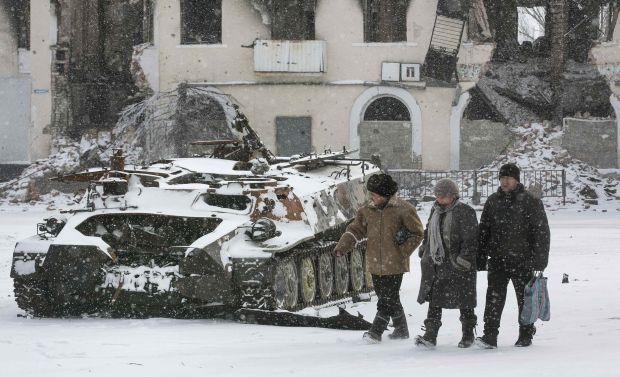
“Russia will still try to maintain its positions in the region, but in the end, after a while, it will still recognize such an option as the least acceptable,” said Fesenko, “Of course, this is not the best option for Russia, but I think it may agree to such a compromise.”
At the same time, in his opinion, Ukraine should not expect a swift response from the UN in this regard. Firstly, this is because funding has to be found for the mission. The second thing to be found is the military personnel for deployment. According to conservative estimates, it may take from several months to half a year.
Konstantin Goncharov, Tatiana Urbanskaya

